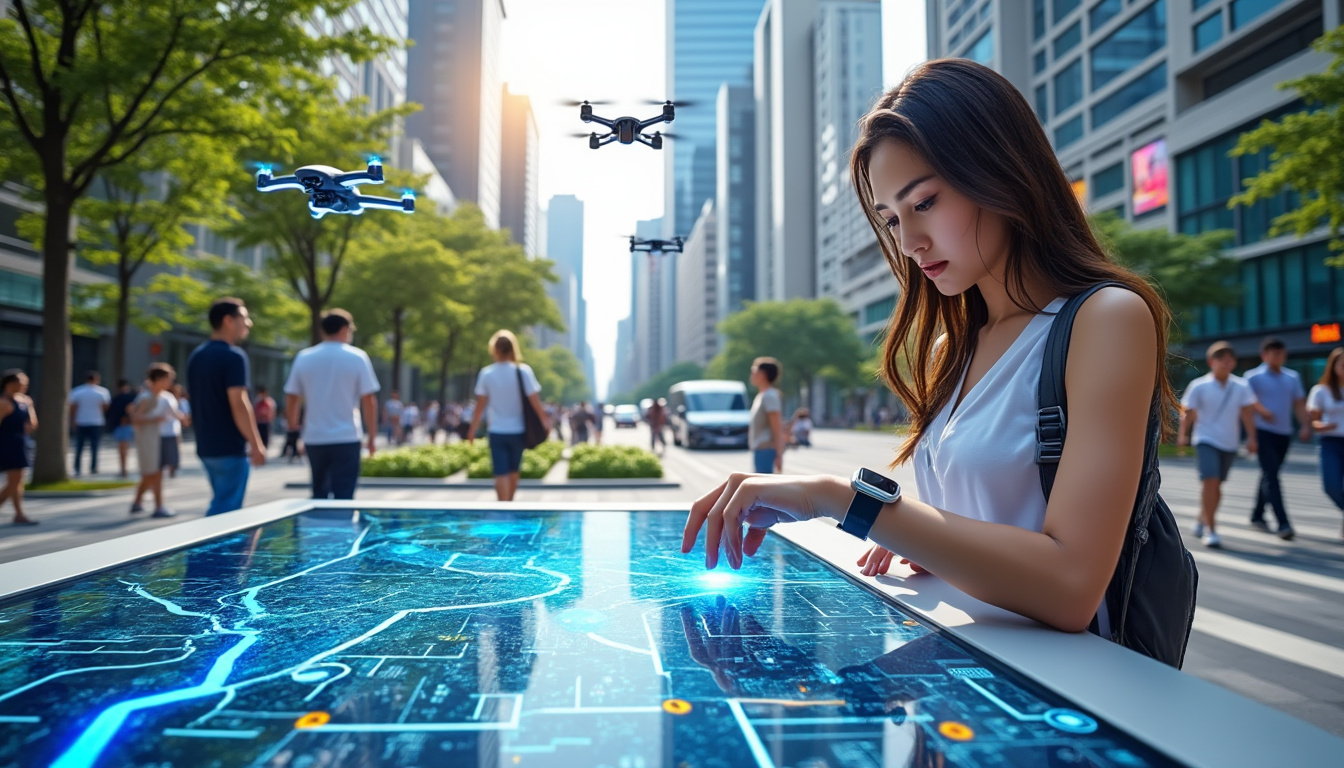Geolocation applications have become essential in our daily lives, facilitating travel, improving logistics and personalizing our user experienceBy 2025, they will continue to evolve, integrating advanced features and adapting to increasingly specific needs.
In this article, explore strategies to optimize your experience with these innovative technologies.

Geolocation technologies: an overview of advances
Geolocation relies on several fundamental technologies that allow the precise location of a user or object to be determined. Among these, satellite positioning systems, such as GPS, are the best known. However, other solutions, such as GSM triangulation and Wi-Fi, also achieve remarkable results. These technologies now offer a adapted precision, reaching up to a few centimeters in optimized environments.
Evolution of geolocation systems
Geolocation systems have evolved thanks to technological advances. For example, digital maps like Google Maps, Apple Maps and Waze are constantly being enriched with new features. Users benefit from real-time updates on traffic, weather and other relevant information to improve their browsing experience. In addition, services like Here Technologies and Telecoms offer solutions for companies wishing to integrate geolocation into their services.
Integration of geolocation APIs
For developers, using APIs is essential for integrating geolocation features into applications. Solutions like OpenStreetMap and Bing Maps offer robust APIs that enable easy access to maps and geographic data. These APIs can be used to build custom applications, ranging from navigation to logistics to tourism services. The possibilities are endless.
| Technology | Description | Common applications |
|---|---|---|
| GPS | Satellite positioning system | Personal navigation, fleet tracking |
| Wi-Fi | Using wireless networks for geolocation | Location in buildings, businesses |
| GSM triangulation | Method based on signals from telecommunication towers | Emergency services, mobile location |
Optimizing user experience through geolocation applications
Optimizing the user experience through location-based applications requires careful attention to several factors, including the customizationthe ease of use, and the DATA SECURITYIn 2025, these elements will be crucial to retaining an increasingly demanding user base.
Personalization of services
Users expect unique and personalized experiences. That's why apps like MapQuest and TomTom integrate recommendations based on browsing history and personal preferences. By leveraging AI and machine learning, these apps can anticipate users' needs, offering personalized routes and suggested stops based on their habits.
Accessibility and ergonomics
In a world where users are constantly seeking simplicity, user interface usability is essential. The best location-based apps invest in intuitive interfaces, minimizing the number of actions required to obtain the desired information. A well-designed user interface can significantly optimize the user experience.
- Clear interface : Buttons and menus must be accessible.
- Smooth navigation : No latency during interactions.
- Speed of access : Results provided in less than two seconds.
Mobile geolocation applications: what’s new in 2025?
The rise of location-based applications has spawned an ecosystem of innovations. 2025 promises to be a turning point, with multiple trends aimed at enriching the content offered by these applications.
Key trends in geolocation applications
Among the expected innovations, several major trends are expected to emerge. The integration of augmented reality to enhance tourist experiences is one of the most promising. By allowing users to view contextual information about the places around them through their smartphones, these applications will transform guided tours and local discoveries.
Geolocation and local trade
Advances in geolocation also offer exceptional marketing opportunities. Businesses will be able to target their potential customers by offering special deals based on their location. This dynamic, often referred to as geomarketing, proves to be particularly effective for local businesses, thus promoting a direct link between the consumer and the retailer.
| Trends | Examples | Expected impact |
|---|---|---|
| Augmented reality | Immersive tours | High customer engagement |
| Geomarketing | Personalized offers | Increased sales |
| Artificial intelligence | Recommendations | Increased customer loyalty |
Ensure the confidentiality and security of geolocation data
With the increase in location-based features, concerns are emerging around the DATA SECURITY and privacyBy 2025, users will be increasingly aware of the need to protect their personal information while browsing. Applications must therefore ensure robust methods for managing and securing data.
Legal framework and regulations
Securing personal data requires constant vigilance. Regulations such as the GDPR in Europe impose strict requirements on how companies collect, store, and use geolocation information. Companies must therefore ensure they comply with these regulations to avoid the risk of hefty fines.
Best practices in data protection
Users should also be informed of the measures in place to protect their data. Some recommended practices include:
- Data encryption : Ensures that sensitive information is inaccessible without authorization.
- Informed consent : Users must be informed before their data is collected.
- Regular audit : Data access must be regularly checked to prevent abuse.
FAQ about geolocation applications
Why is it important to optimize a geolocation application?
Optimizing a location-based application is crucial to improve user experience and maximize engagement.
How to use the advanced features of geolocation applications?
Advanced features such as GPS, augmented reality and geomarketing must be seamlessly integrated to deliver contextual recommendations.
What are the benefits of a geolocation application?
Benefits include simplified navigation, personalized recommendations, and improved interaction with local services.
Is geolocation suitable for delivery services?
Yes, geolocation is essential for tracking deliveries in real time and optimizing routes.
How is security guaranteed in geolocation applications?
Security is ensured through data encryption, regulatory compliance and regular access auditing.
